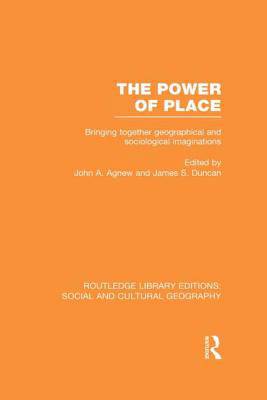
- Retrait gratuit dans votre magasin Club
- 7.000.000 titres dans notre catalogue
- Payer en toute sécurité
- Toujours un magasin près de chez vous
- Retrait gratuit dans votre magasin Club
- 7.000.0000 titres dans notre catalogue
- Payer en toute sécurité
- Toujours un magasin près de chez vous
The Power of Place (Rle Social & Cultural Geography)
Bringing Together Geographical and Sociological Imaginations
Description
Reflecting the revival of interest in a social theory that takes place and space seriously, this book focuses on geographical place in the practice of social science and history. There is significant interest among scholars from a range of disciplines in bringing together the geographical and sociological 'imaginations'. The geographical imagination is a concrete and descriptive one, concerned with determining the nature of places, and classifying them and the links between them. The sociological imagination aspires to explanation of human activities in terms of abstract social processes. The chapters in this book focus on both the intellectual histories of the concept of place and on its empirical uses. They show that place is as important for understanding contemporary America as it is for 18th-century Sri Lanka. They also show how the concept can provide insight into 'old' problems such as the nature of social life in Renaissance Florence and Venice. The editors are leading exponents of the view of place as a concept that can 'mediate' the geographical and sociological imaginations.
Spécifications
Parties prenantes
- Editeur:
Contenu
- Nombre de pages :
- 242
- Langue:
- Anglais
- Collection :
Caractéristiques
- EAN:
- 9780415733205
- Date de parution :
- 04-12-13
- Format:
- Livre relié
- Format numérique:
- Genaaid
- Dimensions :
- 156 mm x 233 mm
- Poids :
- 497 g

Les avis
Nous publions uniquement les avis qui respectent les conditions requises. Consultez nos conditions pour les avis.





